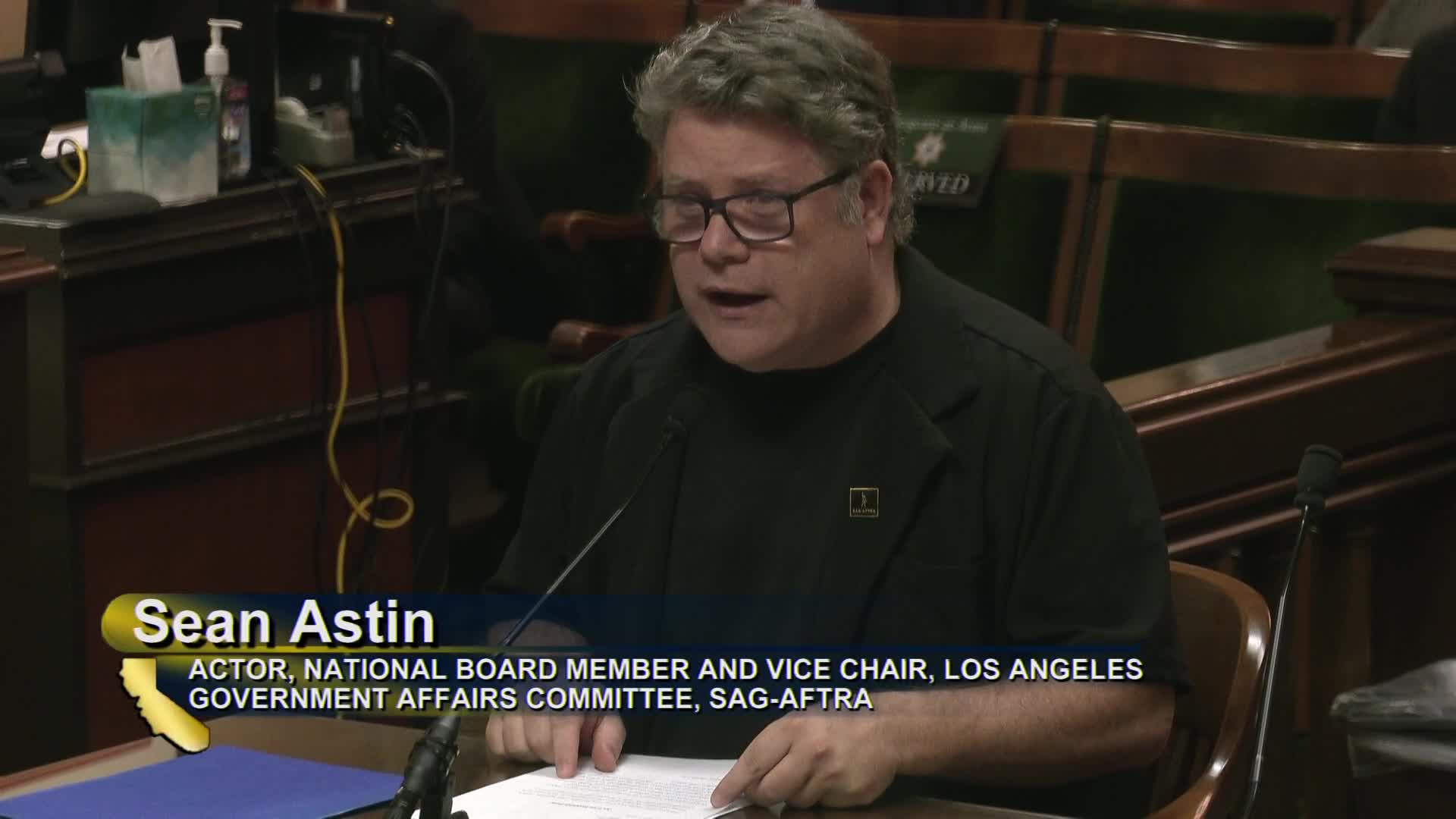Union leaders demand urgent action against AI exploitation
August 07, 2024 | California State Assembly, House, Legislative, California
This article was created by AI summarizing key points discussed. AI makes mistakes, so for full details and context, please refer to the video of the full meeting. Please report any errors so we can fix them. Report an error »

In a recent government meeting, representatives from various entertainment unions, including SAG-AFTRA, voiced urgent concerns regarding the implications of artificial intelligence (AI) on their members' livelihoods and identities. With approximately 90,000 members in California alone, the unions highlighted the unsettling effects of AI technology, which they argue threatens the very nature of their profession.
The discussions underscored a growing anxiety among performers about the ethical use of AI, particularly regarding the unauthorized replication of their likenesses, voices, and movements. Union leaders emphasized that while technological advancements can drive innovation and economic growth, the current trajectory of AI development poses an existential threat to their community. They likened the situation to \"horse thievery\" rather than mere obsolescence, asserting that the industry's shift towards AI is systematically dismantling traditional career paths for performers.
During the meeting, union representatives recounted the outcomes of their historic 118-day strike, which aimed to address these concerns. They secured groundbreaking contract language focused on consent, compensation, and usage of AI, but expressed frustration over the enforcement of these provisions. Members reported that companies are not adhering to the agreed-upon terms, often requiring performers to consent to digital replicas without adequate notice or information about usage.
The unions called for government intervention, arguing that only legislative action can impose the necessary consequences on tech companies that fail to respect their agreements. They proposed the establishment of an informed consent bill of rights to protect individuals from the misuse of their digital identities, including the threat of deepfakes.
The meeting concluded with a plea for accountability and transparency in the use of AI, emphasizing the need to safeguard performers' identities and ensure that their rights are upheld in an increasingly digital landscape. Union leaders reiterated that the protection of their members' identities is not just a labor issue but a matter of public importance, urging swift action from lawmakers to address these profound challenges.
The discussions underscored a growing anxiety among performers about the ethical use of AI, particularly regarding the unauthorized replication of their likenesses, voices, and movements. Union leaders emphasized that while technological advancements can drive innovation and economic growth, the current trajectory of AI development poses an existential threat to their community. They likened the situation to \"horse thievery\" rather than mere obsolescence, asserting that the industry's shift towards AI is systematically dismantling traditional career paths for performers.
During the meeting, union representatives recounted the outcomes of their historic 118-day strike, which aimed to address these concerns. They secured groundbreaking contract language focused on consent, compensation, and usage of AI, but expressed frustration over the enforcement of these provisions. Members reported that companies are not adhering to the agreed-upon terms, often requiring performers to consent to digital replicas without adequate notice or information about usage.
The unions called for government intervention, arguing that only legislative action can impose the necessary consequences on tech companies that fail to respect their agreements. They proposed the establishment of an informed consent bill of rights to protect individuals from the misuse of their digital identities, including the threat of deepfakes.
The meeting concluded with a plea for accountability and transparency in the use of AI, emphasizing the need to safeguard performers' identities and ensure that their rights are upheld in an increasingly digital landscape. Union leaders reiterated that the protection of their members' identities is not just a labor issue but a matter of public importance, urging swift action from lawmakers to address these profound challenges.
View the Full Meeting & All Its Details
This article offers just a summary. Unlock complete video, transcripts, and insights as a Founder Member.
✓
Watch full, unedited meeting videos
✓
Search every word spoken in unlimited transcripts
✓
AI summaries & real-time alerts (all government levels)
✓
Permanent access to expanding government content
30-day money-back guarantee

